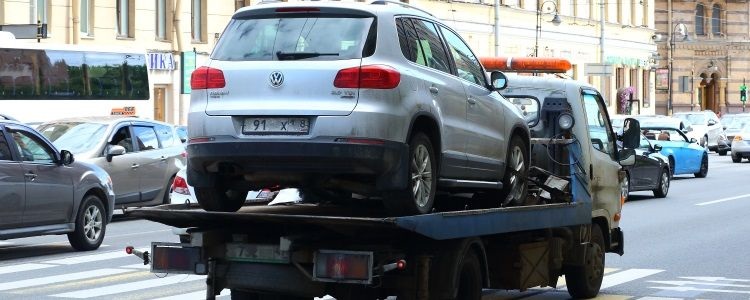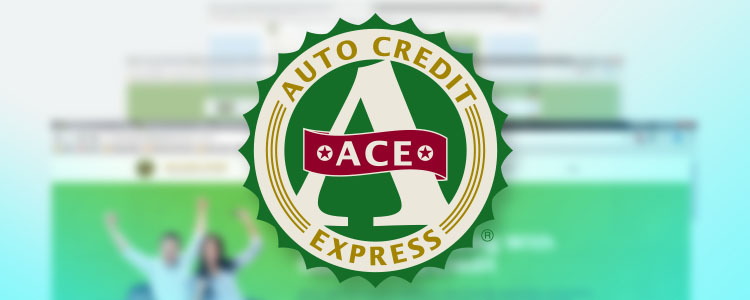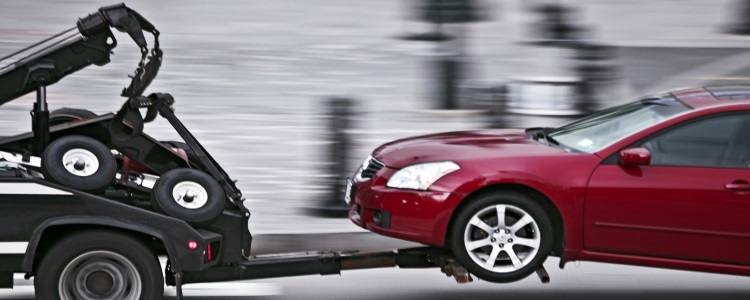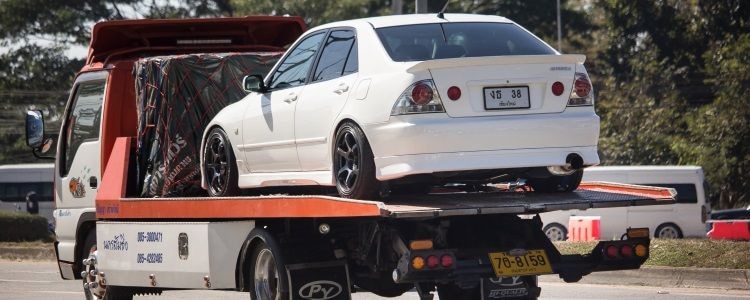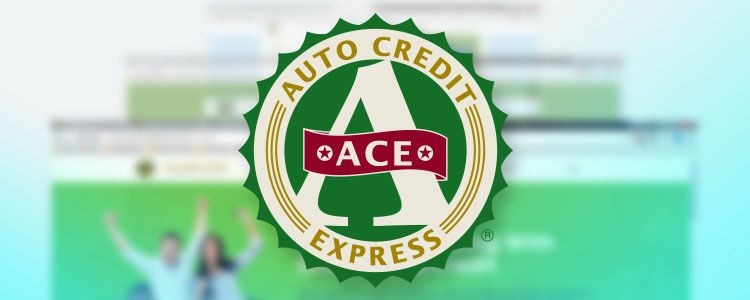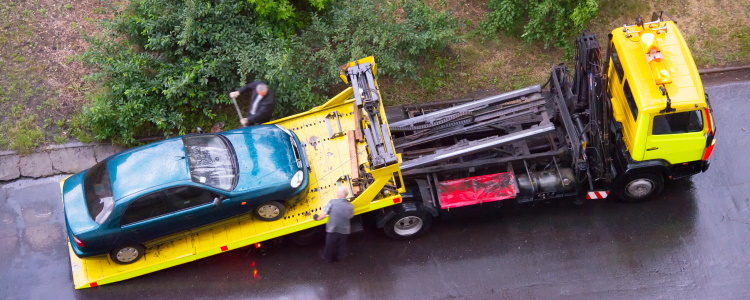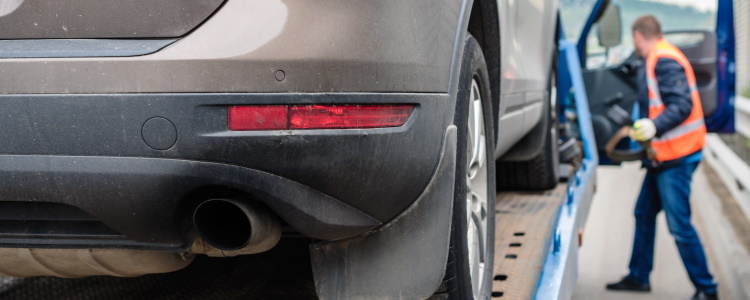Your vehicle can be taken from you if you are late with payments in an act known as repossession. A repossession will cause your credit score to take a big hit, and it can remain on your credit reports for up to seven years. Let's take a look at how auto repossession works.
Auto Repossession
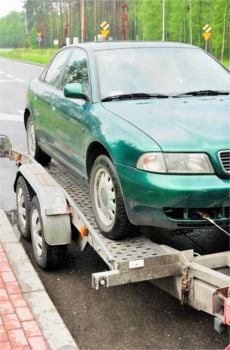
When you finance a vehicle, the lender is the owner of it until you have fulfilled the terms of the contract. As for leasing, you are never the owner and you return the vehicle at the end of the contract. This is why a creditor has the right to repossess your vehicle if you fall behind on payments.
In most states, the lender can repossess, or take back, your vehicle any time after the loan is in default. And they don't even have to give you a warning in advance before doing so. Your contract will state how much time constitutes a default. Creditors and/or the repossession agents they hire can also come onto your property to do so.
Keep in mind that the lender must still follow certain rules during the process. For example, they cannot commit a "breach of the peace" when taking the car back. Different states define that term differently, but it usually forbids the use of physical force and doesn’t allow them to remove the vehicle from a closed garage. If they happen to commit a breach of the peace, you should consult a lawyer to learn your rights.
The creditor also can't keep or sell any of your personal property that's left in the car. You are entitled to get it all back, and they are typically bound to tell you how you can retrieve it.
Additionally, there are rules in place for how a lender can go about selling the repossessed vehicle, which is the next step in the process.
Selling the Vehicle
In order to reduce or eliminate any losses, the creditor will resell the repossessed vehicle. This is typically done at an auction. State laws vary, but usually the lender has to let you know when that will happen in advance.
Laws may even require that they tell you the time and place of the sale if it's going to be sold at a public auction. This allows you to attend and bid on the vehicle if you choose to.
Again, there are laws in place that govern the selling of the vehicle. It needs to be done in a "commercially reasonable manner." This basically means the creditor can't accept a really low selling price. Violating that rule will cause the lender to lose other rights against you.
Redemption and Reinstatement
Before the car gets to auction, there may be a chance for you to reclaim the vehicle. If you want it back, you should get in contact with the lender as soon as the repo happens. This may give you the opportunity to "redeem" or "reinstate" the loan.
Some states allow you to reinstate your loan. This practice involves you paying the lender the amount you are behind on the loan plus associated repossession fees. Then you get your car back and the loan continues.
You may also be entitled to redeem the vehicle. This entails paying the full amount that is due on the loan (including applicable fees) in one lump sum in order to get the car back.
The Deficiency
Chances are the lender will not sell the vehicle for the exact amount that is left on your loan contract. Guess who will be responsible for that difference if it's less? That's right, you are.
The difference between what you owe on your contract (plus fees and other expenses) and the selling price of the repossessed car is called a "deficiency." In most states, the creditor can sue you to collect the deficiency. That is, as long as the repossession and resale were done lawfully.
In rare cases where the vehicle is sold for more than what you owe and related expenses, the lender must pay you the surplus.
The Bottom Line
Repossession should be avoided at all costs. If you realize that you are going to be late with your car payment, get in touch with the lender as soon as possible. You may be able to negotiate a payment delay, a revised payment schedule, or even arrange a deferment. If you do reach an agreement, get the changes in writing.
If you didn't act soon enough, you can still get approved for an auto loan following a repossession. At Auto Credit Express, we work with a nationwide network of special financing car dealerships that have the tools and experience needed to get people dealing with bad credit into another vehicle. See what we can do for you today by completing our free and easy car loan request.

